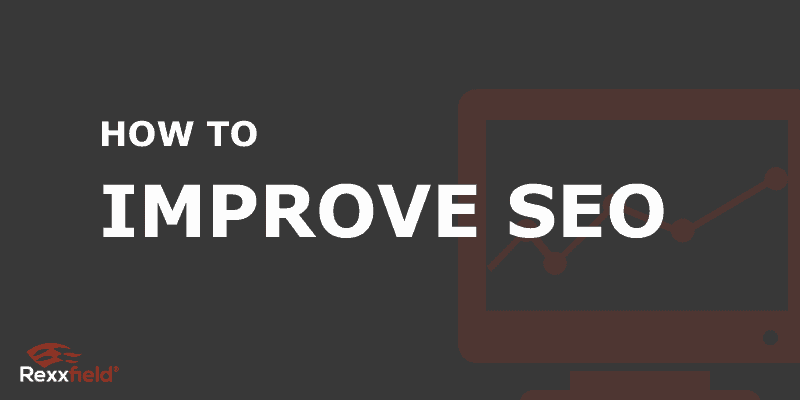If you want to repair your online reputation, it is important to know how to convince Google to rank your content high in Google search results. We listed SEO statistics for 2020 to help you get an understanding of SEO and how to improve your online presence. By optimizing and elevating positive content you can outrank the negative content and potentially restore your good (business) name on the internet.
Need help restoring your online reputation?
SEO statistics to help you improve your efforts
1. The more backlinks a web page has, the more search web traffic it obtains from Google.
In a study of 920 million websites, Ahrefs found that as website traffic increased, so did the variety of referring domain names.
What’s the connection?
That strong material you wrote– you know, the one with 2,000+ words– will not just answer your consumer’s question. Still, it will certainly also please various other industry leaders who are additionally searching for strong web content.
They’ll award your initiative with a web link, and, at the same time, enhance your position along the road.
2. The leading four ranking elements are website visits, time spent on a website, web pages per session, and bounce rate.
According to SEMrush’s research on ranking variables, long, quality material and internal linking are additionally important if you want your site to be found.
Yet excellent writing will only get you so far.
If you desire your visitors to remain on your site, you’ll be required to consider their demands. Don’t just think in terms of the content you offer but also how they browse through that content. This is called technological SEO, and it is equally as big of an element as on-page elements.
3. In 2019, of all worldwide online traffic, 52% originated from mobile, and 45% from desktop.
Before changing everything to mobile, you should first check out the analytics details for your site. These are worldwide statistics and may not represent what’s going on for your site in your industry. Every target group browses differently.
That stated, although a desktop computer might have the edge for your site, you are still required to be mobile-friendly if you want to count, across the country, and around the world.
Likewise, the variety of gadget sizes implies your website must be responsive, rather than just having one size for mobile.
4. 36% of Search Engine Optimization experts assume the headline/title tag is one of the most vital Search Engine Optimization component.
It’s tempting to spend a great deal of time crafting the perfect copy for an article and then to want to move on. In doing so, we tend to handle the headline as an afterthought.
That’s a mistake, according to Search Engine Optimization specialists.
Your headline will not only let the online search engine understand what you’re blogging about, but there is also a good chance it will show up on social network feeds, in newsletters, and in all the backlinks you’ll receive.
If your headline is appealing and focus-grabbing, that’s when your target market will click into that headline. Take the time to produce numerous (a minimum of 3) versions that contain the keyword phrase you wish to rank for. Then, workshop your title with coworkers and associates.
The time you take to craft the excellent heading will pay off in traffic and ranking.
5. Long-tail keyword phrase searches have a click-through rate of 3% to 5% higher than generic searches.
The majority of searchers aren’t looking for one- and two-word terms; they’re searching phrases that are four words or longer.
They’re looking for specifics.
Your web content requires you to show this.
It’s the difference between “Search Engine Optimization” and “Search Engine Optimization statistics” and “SEO data for 2020.”
See how those searches differ? There’s a unique intent with each, and the individual expects different, much more appropriate, and extra updated web content as the search phrase gets longer.
6. 70% of marketing experts see SEO as more powerful than PPC.
With electronic advertising and marketing ending up becoming more sophisticated, it’s no surprise that firms are continuously getting better at Search Engine Optimization– and seeing more return on investment from SEO efforts than from PPC.
A number of participants reported that they see even more results (consisting of web traffic, leads, and sales) from SEO. Others utilized ROI as a standard to place SEO over PPC.
Marketing professionals discovered Search Engine Optimization to be a long-term approach, while PPC allows temporary bursts.
7. More than 1.3 million organizations, web site authors, and nonprofits across the country benefited from using Google’s advertising services.
Despite marketers seeing SEO as more effective than PPC, the prospective to profit from doing ads in Google Search is there.
Those online marketers who see SEO as the stronger approach shouldn’t always pass on paid campaigns completely.
8. Upgrading and republishing old blog posts with brand-new material and photos can enhance organic website traffic by as much as 106%.
If you’ve had web content that’s been relaxing for some time, historic optimization could become your new friend.
By upgrading and refreshing existing web content, you not only obtain the benefit of getting more out of old articles; but, you can reenergize those oldies to improve ranking.
If you’ve got a solid baseline and were once ranking for keywords with older short articles, this is the best tactic to take back for your 2020 technique.
9. Photos count for 22.6% of search inquiries on Google.
With the growing dependence on Pinterest, Instagram, and various other visual-based systems, consumers are trying to find search results they can see instead of reading.
10. 61% of marketers state enhancing Search Engine Optimization and expanding their organic existence is their leading inbound advertising and marketing concern.
As a result of the success of incoming advertising and marketing and Search Engine Optimization, more marketers are devoted to enhancing their ranking over various other strategies.
Your rivals probably fit into this 61%, so now is the moment to take Search Engine Optimization seriously.
Things to do to optimize your SEO in 2020
Marketers are spending even more money and time on SEO. Which means the competition for the top places will continue to warm up.
Offering value to your consumer is still the most effective strategy for ranking in search engines. So maintain writing high-quality web content and creating first-class individual experiences.
Mobile is progressively coming to be a more significant factor in ranking, especially when it comes to local marketing.
Staying up-to-date on SEO statistics and working data into your strategy can set you up for a long-term roadmap. And performing a technical SEO audit is a helpful way to hone your strategy and create some quick SEO wins.



Trackbacks/Pingbacks